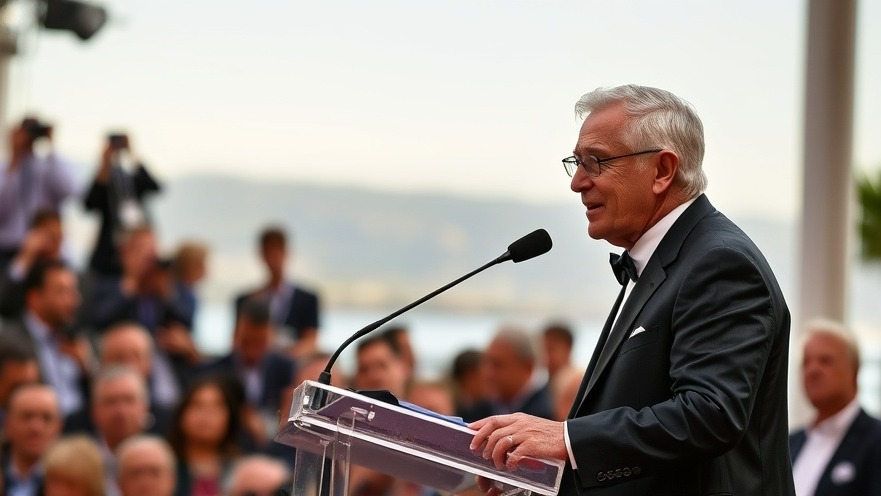
De Niro’s Bold Stand at Cannes: A Call for Global Action
At the illustrious Cannes Film Festival, famed actor Robert De Niro took center stage not just as an artist, but as a passionate advocate for democracy and artistic freedom. Accepting the honorary Palme d’Or, he utilized his acceptance speech to issue a powerful critique of the current U.S. President Donald Trump, whom he referred to as a ‘philistine president’, asserting that his policies pose a global threat to democratic ideals and creative expression.
The Role of Art in Society
De Niro emphasized that art is more than entertainment; it is a crucial vehicle for truth and unity. “In my country, we are fighting like hell for the democracy we once took for granted,” he articulated, emphasizing how this struggle transcends borders. This notion is particularly resonant for digital nomads, who often navigate diverse cultures while seeking artistic inspiration and authenticity in their travels.
Creativity vs. Censorship
In a pointed remark, De Niro criticized Trump’s proposition of imposing a 100% tariff on foreign films, illustrating how such financial barriers can stifle creativity. “You can’t put a price on creativity,” he protested, highlighting the absurdity of commodifying art. This sentiment reflects a growing concern among artists and creators worldwide, especially those in the travel and cultural sectors, who often rely on diverse influences to shape their work.
Global Implications of Local Politics
De Niro's remarks serve as a microcosm of the larger struggles faced globally. The intertwining of politics and culture is evident, as what happens in the U.S. ripples through the international artistic community. 'This isn’t just an American problem; it’s a global one,' he declared, urging the audience to consider their role in the fight for freedom and equality. For digital nomads and the broader traveling community, this is an important reminder that every interaction and engagement they make—including art appreciation—can influence global discourse.
A Rally for Civic Engagement
As De Niro concluded his speech, he invoked a sense of urgency and collective action: “It’s time for everyone who cares about liberty to organize, to protest, and when there are elections, vote.” This call to action resonates deeply within the cultural landscape and encourages individuals—especially those who identify as digital nomads—to not only appreciate the cultures they encounter but also engage with them actively. The myriad of experiences that artists bring to life serves as both a narrative of existing struggles and a blueprint for activism.
Persevering Through Challenges
The festival atmosphere contrasts sharply with the broader conversations surrounding cultural appropriation and ethical engagement in global art forms. Engaging with local cultures ethically is crucial for travelers; understanding these complexities can enhance personal experiences while ensuring respect for the roots of various artistic expressions. For digital nomads, developing a mindset that appreciates the intricacies of cultural dynamics can lead to greater societal impact.
Conclusion: Embracing the Power of Art
Through his impassioned address, Robert De Niro not only championed artistic freedom but also served as a catalyst for reflection among audiences. For digital nomads engaged in exploring world cultures, this moment serves as a powerful reminder of the potential for art to inspire change and foster connections. The film festival, marking a celebration of creativity, also beckons a collective action to protect the values of liberty and diversity around the globe. Now, more than ever, individuals must stand united in their engagement with both art and the political landscape. Whether through attending local exhibitions, participating in workshops, or advocating for cultural integrity, every small action contributes to a larger narrative.
 Add Row
Add Row  Add
Add 




Write A Comment